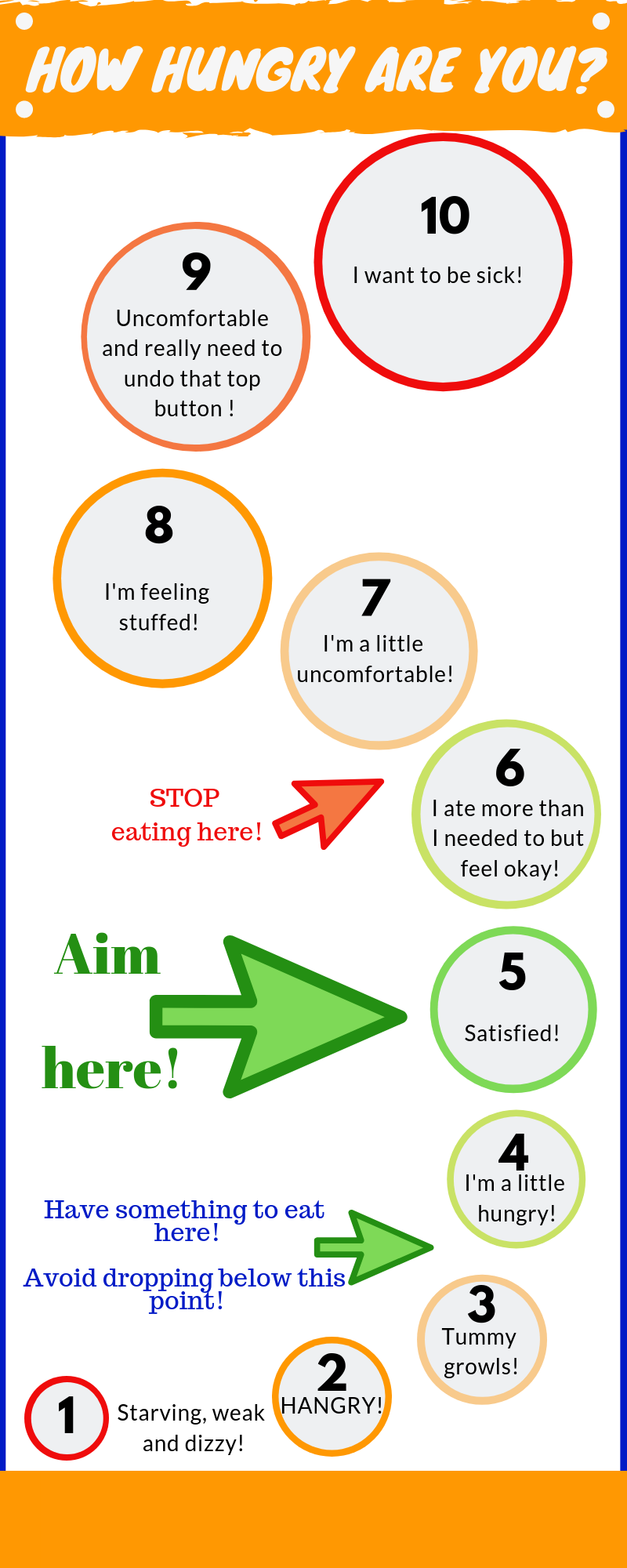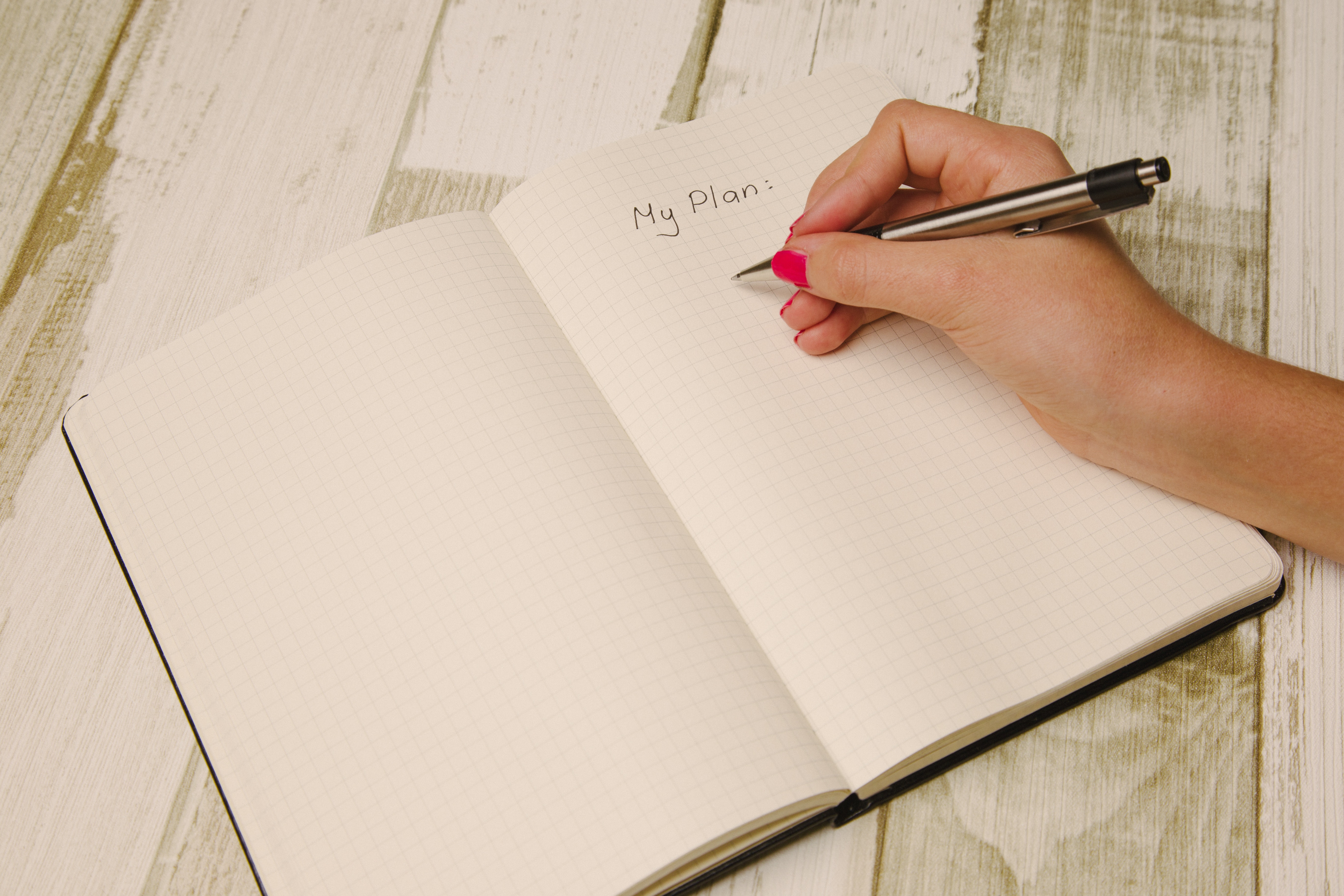While there are a number of different types of food you should not eat so much of, you don't necessarily have to cut them out completely! You should enjoy your meals and not be constantly thinking about food because you are hungry or feel you are missing out on something!
Using the hunger scale
A key element of good nutrition is being able to recognise your hunger signals. This means not eating out of habit when you are not actually hungry, such as snacking in front of the TV or when the clock strikes ‘meal time’. It also means being able to recognise when you are full.
Use the hunger scale to identify when to eat rather than a particular time. Aim to remain within 4-6 on the hunger scale. Dropping below 2 can lead to grabbing the first available food item rather than something more nourishing!
Sometimes being thirsty is mistaken for being hungry, so ensure you are drinking enough water (about 8 glasses per day)! Make it a habit to have a drink of water before you grab a snack and then check in with yourself to see if you still feel hungry.
We've gotten into the habit of overeating which leads to feeling bloated and sluggish. To ensure you recognise when you are full, eat slowly to give your stomach time to send the signal to your brain that it is full. Stop half way through your meal, give yourself a couple of minutes and then assess if you are full or not. Repeat when you have finished half of what was left.
Don't be tempted to go the other way either! Not getting enough to eat can be as detrimental to your health as over eating! By not eating enough, you may be missing some vital nutrients that your body needs. In addition, if your body is not getting enough calories to support your natural metabolic rate as well as any exercise you are doing, it will go into fat storing mode!
When you're not really hungry!
Some symptoms that you experience may actually be something other than hunger!
- A headache and a little dizziness could be a result of dehydration.
- Sugar cravings may be an indicator of stress.
- Feeling low energy may be due to being physically tired.
- That wandering mind in the afternoon could well be because you are bored!
Get in touch with your eating habits
Record what you eat including portion sizes, what time it is when you eat, if you are doing any other activity while you are eating (driving, watching TV), and how you are feeling, both before and after you eat.
On the completion of the two weeks, have a look back at your journal and identify any patterns. Do you eat more at a certain time of day? Do you have an activity where you are eating out of habit? Do your emotions cause you to eat in a particular way? Once you are aware of areas that are letting you down in your healthy eating, it is easier to find ways to improve.



